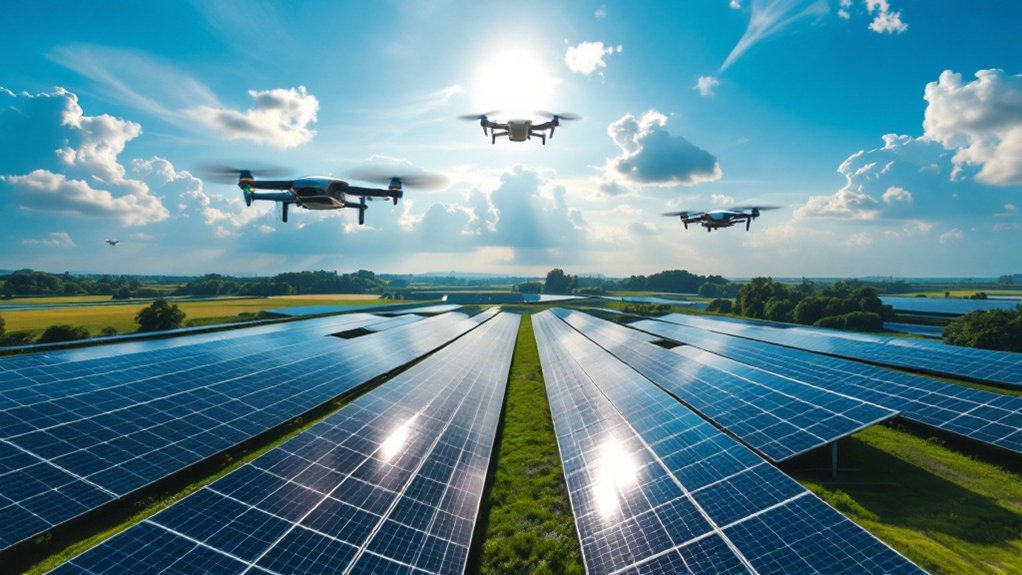
How AI Enhances Solar Energy Efficiency
AI plays a critical role in enhancing solar energy efficiency. By analyzing real-time data, it optimizes the performance of solar panels and predicts energy output. In addition, AI can detect anomalies that may indicate potential failures, enabling timely maintenance. This not only reduces costs but also improves reliability. As the integration of AI in solar energy continues to evolve, its implications for future energy systems warrant further exploration.
Understanding Solar Energy Production
Solar energy production relies on the conversion of sunlight into usable electricity through photovoltaic cells. These cells, composed of semiconductor materials, absorb photons from sunlight, exciting electrons and creating an electric current. This process begins when sunlight strikes the surface of the photovoltaic material, causing an electric field to form and facilitating the flow of electrons. The generated direct current (DC) is then converted into alternating current (AC) through an inverter, making it compatible with the electrical grid. The efficiency of this conversion can be influenced by various factors, including the angle of sunlight, temperature, and shading. As solar technology advances, researchers continue to explore methods to enhance efficiency and lower costs, making solar energy a more accessible alternative to fossil fuels. The shift towards renewable energy sources is crucial in combating climate change and ensuring a sustainable future.
The Role of AI in Monitoring and Optimization
Advancements in solar energy technology have led to increased interest in leveraging artificial intelligence (AI) for monitoring and optimization. AI systems can analyze vast amounts of data generated by solar panels to assess their performance in real-time. By employing machine learning algorithms, these systems identify patterns and anomalies, enabling operators to make informed decisions regarding energy output and efficiency. In addition, AI can facilitate the optimization of energy production by adjusting configurations based on environmental conditions, such as shading and weather patterns. This dynamic adaptability not only maximizes energy generation but also extends the lifespan of solar equipment. Ultimately, AI-driven monitoring enhances system reliability and greatly improves the overall efficiency of solar energy installations, paving the way for a more sustainable energy future. Furthermore, the integration of AI in this sector has the potential to revolutionize patient care by optimizing energy use in healthcare facilities.
Predictive Maintenance Powered by AI
While traditional maintenance approaches often rely on scheduled inspections, predictive maintenance powered by AI offers a more proactive solution for solar energy systems. By leveraging advanced algorithms and real-time data analysis, AI can identify potential equipment failures before they occur. This predictive capability allows for timely interventions, reducing downtime and maintenance costs. Furthermore, AI analyzes historical performance data to forecast maintenance needs, optimizing resource allocation. As a result, solar operators can guarantee that their systems are running at peak efficiency. Implementing AI-driven predictive maintenance not only enhances system reliability but also extends the lifespan of solar components, ultimately contributing to greater energy production and sustainability in the solar energy sector. Additionally, integrating sustainable practices in solar operations can further amplify the environmental benefits achieved through advanced technology.
Enhancing Grid Management With AI
Effective maintenance strategies like AI-driven predictive maintenance set the stage for further innovations in solar energy management. AI plays a vital role in enhancing grid management by optimizing energy distribution and improving the reliability of solar energy systems. Through real-time data analysis, AI algorithms can predict energy demand and adjust the solar output accordingly, ensuring a balanced load on the grid. Additionally, AI can identify potential bottlenecks or failures within the grid infrastructure, facilitating timely interventions. By integrating solar energy more efficiently into existing grid systems, AI not only maximizes renewable energy usage but also minimizes the reliance on fossil fuels. This synergy contributes to a more sustainable energy landscape and helps in achieving climate goals. Moreover, the concentration of power in energy sectors can hinder the adoption of innovative technologies like AI, which underscores the importance of promoting inclusivity in energy management.
Future Trends in AI and Solar Energy Integration
As the demand for renewable energy solutions grows, the integration of artificial intelligence (AI) in solar energy systems is poised to transform the industry. Future trends indicate a shift towards more sophisticated predictive analytics, allowing for enhanced forecasting of solar energy production and consumption patterns. AI algorithms will increasingly optimize energy storage systems, ensuring that excess energy is efficiently utilized or stored for later use. Additionally, the development of smart grids will enable real-time data analysis, leading to improved energy distribution and management. As machine learning models become more advanced, their ability to analyze vast datasets will drive innovations in solar panel design and efficiency. Ultimately, these trends promise to create a more resilient and efficient solar energy ecosystem. Moreover, the adoption of hybrid work models in the energy sector will encourage collaboration and innovation, further enhancing the integration of AI in renewable energy solutions.
Frequently Asked Questions
How Does AI Impact the Cost of Solar Energy Systems?
The impact of AI on solar energy system costs is significant. By optimizing design, improving maintenance schedules, and enhancing energy forecasting, AI contributes to reduced operational expenses, ultimately leading to lower overall costs for consumers and businesses.
Can AI Improve Solar Panel Installation Processes?
The potential for AI to improve solar panel installation processes lies in its ability to optimize planning, reduce installation time, and enhance accuracy. This leads to increased efficiency and cost-effectiveness in solar energy deployment.
What Are the Environmental Benefits of AI in Solar Energy?
The environmental benefits of AI in solar energy include optimized energy production, reduced waste through improved resource management, enhanced predictive maintenance for longer equipment life, and decreased reliance on fossil fuels, ultimately fostering a more sustainable energy landscape.
How Does AI Influence Energy Storage Solutions for Solar Power?
AI influences energy storage solutions for solar power by optimizing battery management systems, predicting energy demand, and enhancing discharge cycles. This results in improved efficiency, longer battery life, and better integration of renewable energy sources into the grid.
Are There Privacy Concerns With AI in Solar Energy Systems?
Concerns surrounding privacy in AI-driven solar energy systems are significant. Stakeholders worry about data collection, user identification, and potential misuse of information, emphasizing the need for robust privacy measures to protect individual and community data.
Conclusion
To summarize, the integration of AI into solar energy systems presents a transformative approach to enhancing efficiency and reliability. By leveraging real-time data analysis, predictive maintenance, and improved grid management, AI not only optimizes performance but also reduces operational costs. As the technology continues to evolve, its potential to further revolutionize the solar energy sector becomes increasingly evident, paving the way for a more sustainable and resilient energy future.



